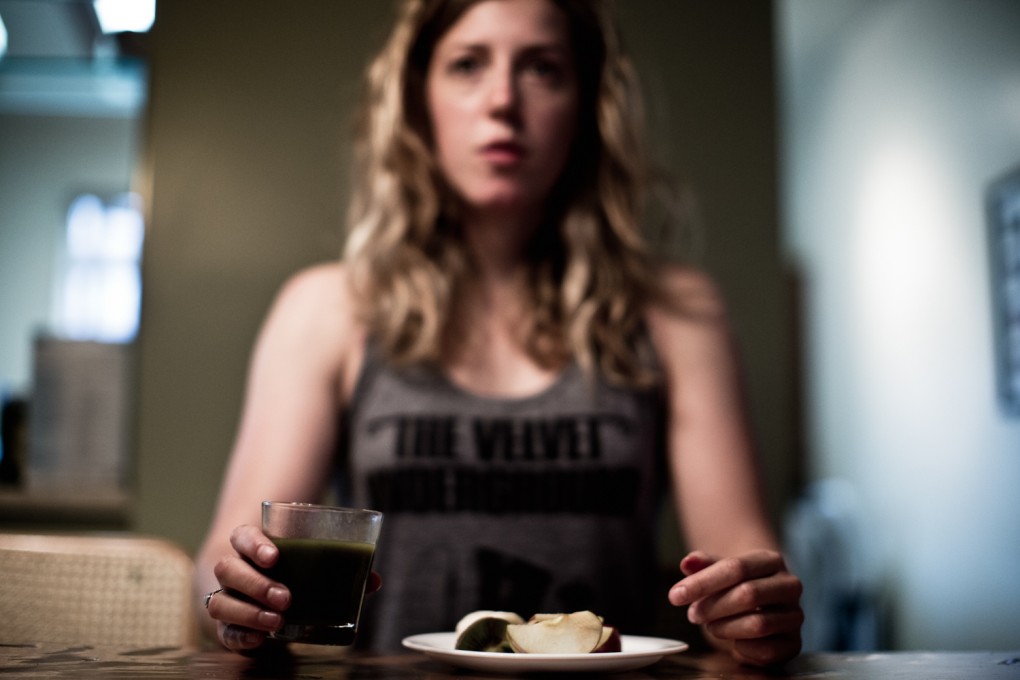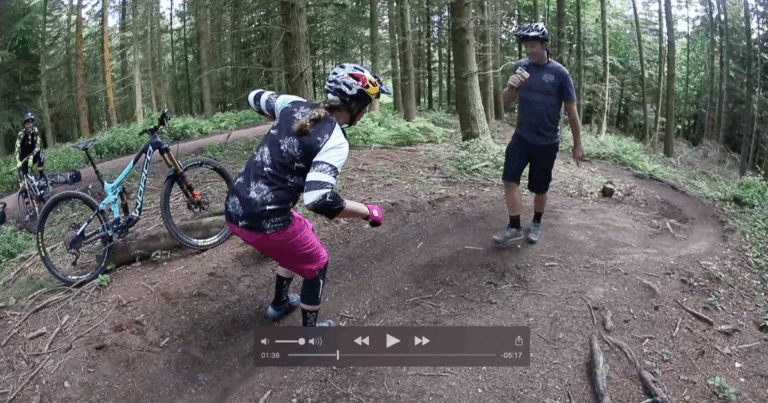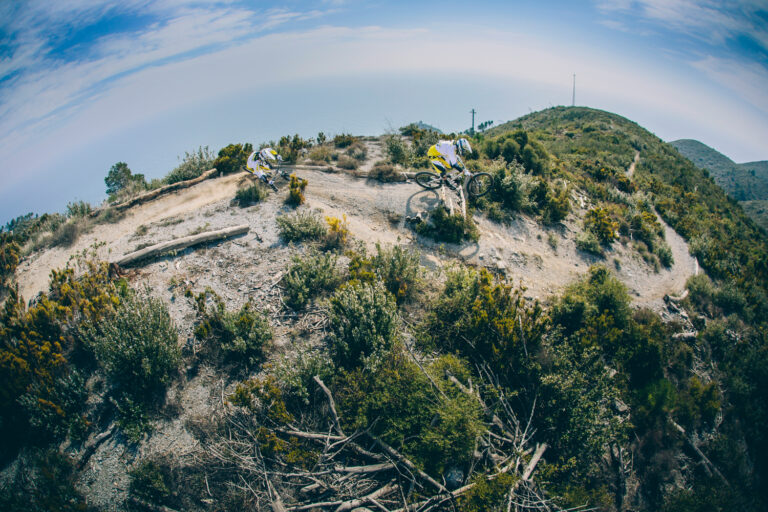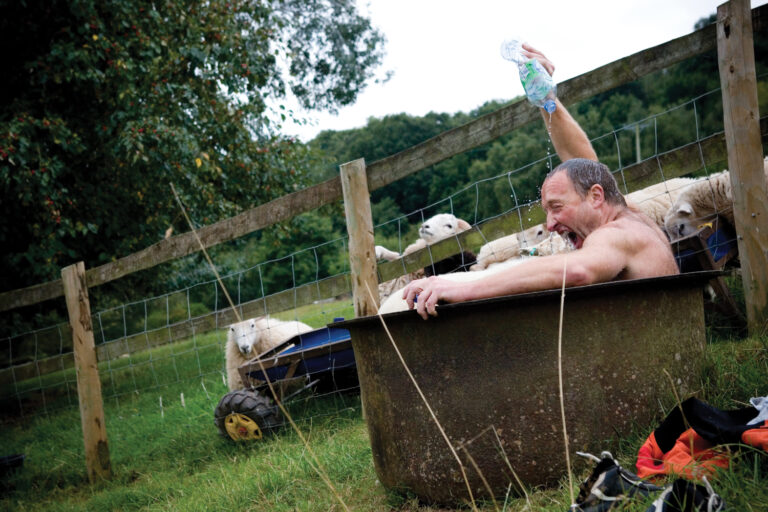
Unlike my peers in the field of nutrition, I don’t have a degree in dietetics – my nutrition knowledge comes from 15 years of working with amazing athletes and practitioners…
From Dirt Issue 133 – March 2013
Words by Darren Roberts. Photo by Sven Martin.
Sure, I’ve done nutrition courses and qualifications. But my time was spent seeking out science and asking why I was seeing the opposite to what the studies found, I spent a lot of time traveling the world and speaking to professors in the field of nutrition. Everything I do as a performance practitioner is under–pinned by science, but it is not dictated by it. You can’t be innovative and breaking performance barriers if everything you do is based on what’s already known, the whole point of innovation is it’s ‘unknown’. The athletes I look after are experts at redefining what’s possible and it’s up to me and the performance team to try and keep up with them.
One thing to make clear about sports science, it’s caused as many problems as it’s solved. I might have just pissed off a whole lot of people in the field saying that, but pissed off or not – it’s a fact. A ‘study’ into something and the result it gets is not as definitive as you think. Has that study been replicated multiple times with the same result? How was the study performed? Who were the subjects? Science is looking for something called ‘statistical significance’ in its results, which means there is a clear result. For me, at the edge of performance, I’m happy with a ‘trend’ rather than some stand–out obvious effect. It’s also important to understand that the subjects taking part in these studies are either ill, or a student population group. I’ve actually seen an Msc study have its resulted skewed negatively because a few of the student footballer subjects got hammered the night before. Having studies done using elite athletes is difficult as there simply aren’t that many of them, and they tend to be busy being pro sports people so don’t have time to commit to several weeks of being poked and prodded.
 So with the above in mind it’s important to balance what you know happens in the field, with what science says happens in a petri dish. Balancing that ‘appliance’ and ‘science’ is key with anything and everything to do with performance, including nutrition. My journey for nutrition knowledge involved seeking out the extremes, bodybuilders are the extreme of lean tissue growth and fat burning, ultra runners are the extreme of endurance. NFL players, premiership rugby players, footballers – I saw them all, looked at what they were doing and what effect it had. I didn’t just look either, I threw myself into the different training regimes and diet plans of bodybuilders to see how it affected me, ballooning to 100kgs and able to bench press small houses. Equally on the endurance side, dropping down to 79kgs and doing five Ironman triathlons. I was no pro athlete, but someone once told me never to ask someone to do something you’re not prepared to do yourself, and if you look like you need to take you’re own advice, how credible are you? There are plenty of porky nutritionists out there who get out of breath walking up stairs (that’s actually me currently!). I’ve always put myself in the athlete’s position, empathy is key to connecting with them.
So with the above in mind it’s important to balance what you know happens in the field, with what science says happens in a petri dish. Balancing that ‘appliance’ and ‘science’ is key with anything and everything to do with performance, including nutrition. My journey for nutrition knowledge involved seeking out the extremes, bodybuilders are the extreme of lean tissue growth and fat burning, ultra runners are the extreme of endurance. NFL players, premiership rugby players, footballers – I saw them all, looked at what they were doing and what effect it had. I didn’t just look either, I threw myself into the different training regimes and diet plans of bodybuilders to see how it affected me, ballooning to 100kgs and able to bench press small houses. Equally on the endurance side, dropping down to 79kgs and doing five Ironman triathlons. I was no pro athlete, but someone once told me never to ask someone to do something you’re not prepared to do yourself, and if you look like you need to take you’re own advice, how credible are you? There are plenty of porky nutritionists out there who get out of breath walking up stairs (that’s actually me currently!). I’ve always put myself in the athlete’s position, empathy is key to connecting with them.
What is ‘nutrition’ then? One of the definitions is, “Nutrition is the provision, to cells and organisms, of the materials necessary (in the form of food) to support life.” We will all have our own definition of what it means to us as individuals, and that’s the key – it’s a totally individual thing. As with anything you need to define your nutrition goal, is it to build or maintain lean mass, burn fat, be healthier or manipulate a performance? It’s usually all of those with most people, whether you’re an athlete or weekend warrior. So whether you’re going for World Cup glory or simply still struggling to shift Christmas weight, here’s some ideas to think about:
- Ensure the food on your plate is as colourful as possible – this means the food is nutrient dense. The more colourful the better.
- Eat a varied diet – eating the same plain bland thing over and over is not what we’re designed to do. We’re designed to eat a varied diet, and it’s also good for the soul as well as the body to eat many different foods.
- Traditional food is good – whichever country you’re from, the traditional meals are actually good for you. It’s how we cook and prepare them that causes the problems. Traditional English cooked breakfast (which I encourage all athletes and anyone to eat) is a great meal to start the day. Might sound crazy, but just think about what it actually is: meat, eggs, tomatoes, mushrooms, a great colourful meal full of protein. It’s how we prepare it that causes problems when we fry it. Traditional English Sunday dinner is meat and lots of vegetables – seems like a nutrient dense varied meal to me.
- Don’t buy food that lasts longer than you – anything a bacteria doesn’t want to eat probably isn’t good for you. So any food which appears immortal should be avoided.
- Have protein with every meal – we tend to eat a very carb dominant diet in the west, when really we need to go the ‘meat and two veg’ route, as my gran used to say. You can get the carbs you need in vegetables without having to have a plate full of pasta or rice. I’m not saying you should never eat those foods, and we all enjoy a good pasta dish. But moderation is key.
- Have a day off – just as with training you need to give yourself a break. We don’t just eat food for fuel, it’s something to be enjoyed, it’s a social or special occasion. Going to the Cheesecake Factory or Ruby’s might not be good for the body, but it’s good for the soul on a ‘treat’ day. Those two establishments have always been my only motivation to go to California with the Athertons!
Eating a balanced, varied and nutrient dense diet will get 90% of people and athletes to 90% of where they need to get to in health and body composition. However, clearly and obviously there are some products and methods that can help athletes and people alike recover faster and get maximum adaptation to the training they’re doing and demands of riding.
Assuming you’re doing all the right things in the first place (balanced, healthy, varied diet), then the first thing to address is recovery. Ensuring you recover properly means you’re fuelled and ready to go for next time. If your name is Dan Atherton, then you recover by digging for six hours then wondering why you’re tired and losing weight. There is a window of 10 mins after finishing a session, race or event when you’re soft tissues are like sponges. This is when you need to get a good cocktail of protein, carbs and maybe a little creatine and glutamine into you as a drink, so it’s straight into the system. This means before you shower, change, put the bikes away or whatever – you need to hit that immediately. Ninety minutes after that you need to get a decent meal into you, as mentioned a nutrient dense colourful meal. Doing these things ensures that you’re body doesn’t start breaking itself down to feed itself, a sort of nutritional ‘robbing Peter to pay Paul’. If you struggle to maintain weight or are trying to increase lean mass – having a lean protein shake before bed can help with this. As usual the science is contradictory, but anecdotally I’ve seen this to be very effective.
If you’re recovering properly, ensuring you’re fuelled for the next session, ride or race is easier. Have a good traditional breakfast, then maintain a steady flow of healthy snacks into you up to an hour before you start. Whilst it may seem obvious for me to suggest using something like a can of Red Bull (Ed note: other energy drinks are available!), the fact is that caffeine has been used for centuries as a ‘pick me up’, from monks to shepherds in South America eating coffee seeds or leaves to stay sharp. Having that mental boost can sharpen you up for what you’re about to do, based on a solid diet. So a can 20–40 mins before you hit the gym or trails is one of the little things you can do to help you perform at your best.
The subject is massive, controversial and highly individual. It’s all about ‘paleo’ among a lot of people I know at the moment, i.e. eating a Paleolithic diet, awakening your inner caveman (or woman) as our digestive systems are essentially 20,000 years old. Ultimately you do whatever works for you, but eating a balanced healthy colourful diet with plenty of meat and vegetables seems like common sense and not just something we did 20,000 years ago.
Now, it’s time for a Ruby’s double cheeseburger…with bacon.
Darren Roberts is Head of High Performance at Red Bull UK working with the likes of the Atherton family, Danny MacAskill, MX enduro star David Knight and many, many others.This article is part of the Work Out series. You can find the rest of Darren Roberts’ training tips through the links below:
[series]





